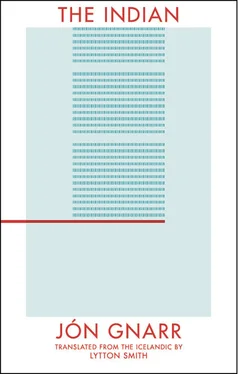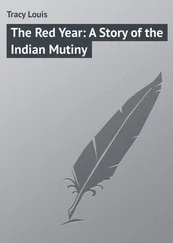Yet in the original French, Dogmatix is not dogmatic, or not quite: he is Idéfix, a play on idée fixe , or single-minded. The potion-brewing druid called Getafix? Actually Panoramix, the character with the panoramic view, wise and all-seeing. In English, there’s an added pun about finding one’s next high — a pun that went over my head at the time, of course. The French reveals a second meaning to the English: to “get a fix” on something might be to get a read on it, to come to see it clearly.
What exists originally cannot remain, and yet there is a delight to knowing both the translation and the source. I winced a little having to turn poor Andrés back into Donald: he is, of course, Donald, but only after having been Andrés. To read Jón Gnarr in translation means to be unaware of Donald Duck’s Danish-Icelandic detour. At best, there’s a degree of surprise in an Icelandic child in the ’70s reading a 1950s U.S. comic, but to American ears Duck Tales will sound expected. I find myself half-tempted to replace Duck Tales with a 1970s Icelandic comic instead. The situations aren’t parallel, though: an American child reading an Icelandic comic would seem precocious. Besides, Icelandic comics didn’t much exist in the 1970s; they’ve only really come into their own over the past 15 years.
The reason a translation can feel like a loss or a betrayal is that translation exists more purely between source and target language: where Andrés Önd meets Donald Duck and is perhaps both and neither character at once. I sometimes wish we could see the process of translation, not the product of it; even facing-page doesn’t quite get that, leaving us with two texts to read, not the prolonged hesitation between them.
The Indian is a singular tale of growing up and finding you don’t fit in. Yet, while there are universal experiences and ideas here — my version of setting fire to my bedroom was “washing” all my stuffed animals by flushing them around the toilet — none of us have quite these experiences, experiences which are Icelandic but not shared by all Icelanders, experiences which are shaped by the world beyond Iceland.
Indeed, the most difficult phrase of all to translate was the novel’s final one: Ég er indjáni. I am Indian. I am an Indian. I am Native American. Transposed into American English, Ég er indjáni registers moments of colonization and cultural erasure. And, muted by the English, it is the wishful exuberance of a boy growing up on a cold, dark island, eating unspeakably horrific-smelling pickled cuisine, and wishing he were elsewhere, to escape, and so falling into some Hollywood-inflected romantic version of “the Indian.” Falling into an impossibility, and not knowing it.
Perhaps, though, what the English brings to that sentence, the Icelandic already knows; the child Jón knows, the adult Jón, narrating, knows. I fight the temptation to insert a negative, hoping the reader can hear one anyway, in both languages. “I’m an Indian,” I type. An Icelandic Indian, which means an American Indian, which means some Lone Ranger -esque version of the Native American.
What exactly that means lies somewhere between Jón’s words and my reworking of them. This is an Icelandic story told in English: an American English estranged from itself by these atypical place-names and cultural references. No longer Icelandic, not quite English, and certainly not Indian. And that, after all, is what Gnarr’s The Indian is ultimately about: being estranged, not fitting in: the boy who is told he is unruly, incompetent, and worthless, but who knows, despite everyone telling him otherwise, how much he has to offer.
Lytton Smith
Geneseo, NY
JÓN GNARR
Jón Gnarr was born in 1967 in Reykjavík with the traditional Icelandic name Jón Gunnar Kristinsson, which he legally changed in 2005 to reflect his mother’s pronunciation of his name from his childhood and to drop his father’s patronymic.
As a child, Gnarr was diagnosed with severe mental retardation due to dyslexia, learning difficulties, and ADHD. He nevertheless overcame his hardships and went on to become one of Iceland’s most well-known actors and comedians. His acting work includes the movies The Icelandic Dream and A Man Like Me and the television series The Night Shift , which aired on BBC4. Gnarr published the first two volumes in his fictionalized autobiographical trilogy in 2006, The Indian , and 2009, The Pirate (the third volume, The Outlaw will be published in Iceland in fall 2015–Deep Vellum will publish the trilogy in full in 2015–2016).
In 2009 in the wake of the global economic crisis that devastated Iceland’s economy, Gnarr formed the joke Best Party with a number of friends with no background in politics. The Best Party, which was a satirical political party that parodied Icelandic politics and aimed to make the life of the citizens more fun, managed a plurality win in the 2010 municipal elections in Reykjavík, and Gnarr became Mayor of Reykjavík.
His term as mayor ended in June 2014 and he plans to use his post-mayor years to continue writing and speaking on issues that are most important to him: freedom of speech, human rights, protecting the environment, and achieving international peace.
Now that his term as mayor is complete, he has moved to Texas as Artist-in-Residence at Rice University’s Center for Energy and Environmental Research in the Human Sciences in Houston. Gnarr plans to focus on writing, speaking on issues of peace and equality, and performing stand-up comedy again, though he has not ruled out a future run for president of Iceland as his popularity in Iceland continues to grow after his successful stint as mayor of the country’s largest city.
LYTTON SMITH
Lytton Smith (born 1982) is an Anglo-American poet and translator born in Galleywood, England. He later moved to New York City, where he became a founder of Blind Tiger Poetry, an organization dedicated to promoting contemporary poetry.
His most recent poetry collection is The All-Purpose Magical Tent (Nightboat Books, 2009), which was selected by Terrance Hayes for the Nightboat Books Poetry Prize in 2007, and was praised by Publishers Weekly in a starred review as “…fantastic and earthy, strange and inherited, classical and idiosyncratic, at once.” He also has a previous chapbook, Monster Theory, selected by Kevin Young for the Poetry Society of America Chapbook Fellowship in 2008. Additionally, Smith’s poetry has appeared in a number of prominent literary journals and magazines such as The Atlantic, Bateau, Boston Review, Colorado Review, Denver Quarterly, Tin House, and many others.
He has taught at Columbia University, Fordham University, and Plymouth University, and is currently a professor at SUNY-Oneonta. He has translated two other novels from Icelandic: The Ambassador , by Bragi Ólafsson (Open Letter 2010) and A Child in Reindoor Woods by Kristín Ómarsdóttir (Open Letter, 2012).


![О Генри - Бабье лето Джонсона Сухого Лога [The Indian Summer of Dry Valley, Johnson]](/books/407344/o-genri-babe-leto-dzhonsona-suhogo-loga-the-india-thumb.webp)









